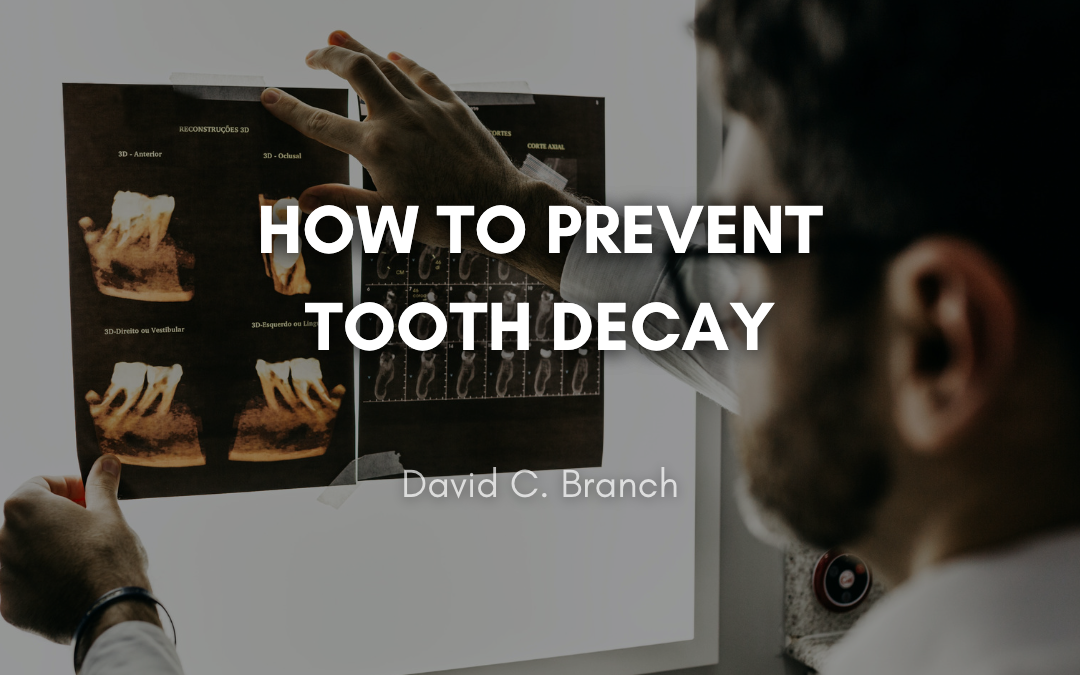Tooth decay is one of the most common dental issues that dentists treat, with one in five people suffering from this painful condition. It is often caused by the buildup of acids on the teeth, typically from the things we eat and drink. Fortunately, there are preventive measures we can take to keep our teeth strong and healthy that will help to avoid expensive and uncomfortable treatments. With proper knowledge and the right habits, it is possible to ward off the acids that weaken our enamel and protect our teeth from cavities. Here is a look at the basics of maintaining good oral hygiene to prevent tooth decay and keep our dental health in check.
Brush twice daily
Brushing our teeth twice a day is the best way to help prevent tooth decay. If we brush properly, we can remove plaque and food debris that can damage the tooth enamel and lead to cavities. Not only will brushing twice daily help prevent cavities, but it will also freshen our breath and give us that confidence boost of a clean, white smile. To ensure that we are brushing correctly, it is important to spend time brushing all surfaces of each tooth, including the hard-to-reach areas of the mouth.
Floss daily
Flossing our teeth on a daily basis is one of the most important steps we can take to prevent tooth decay. Flossing helps to remove the food debris and bacteria that accumulates in the hard-to-reach areas between our teeth. If left unchecked, this bacteria can lead to cavities and tooth decay over time. Flossing helps to dislodge this debris and remove it before bacteria have a chance to cause permanent damage to our teeth. Additionally, flossing helps to stimulate the gum tissues, which can help to improve gum health and reduce the risk of periodontal disease.
Use a fluoride mouthwash
Using fluoride mouthwash is an effective way to help prevent tooth decay. Fluoride is a natural mineral that helps to strengthen tooth enamel, the outermost layer of teeth. By using a fluoride mouthwash, you can help to remineralize the enamel on your teeth, making it more resistant to the effects of bacteria and acid, which will reduce your risk of developing tooth decay.
Be careful with sugar
Sugar is one of the primary causes of tooth decay, as it is acidic and sticks to the surfaces of teeth. The bacteria that damage teeth love sugar, so the more you eat of it, the more likely you are to develop tooth decay. To reduce the risk of tooth decay, limit the amount of sugary snacks you consume. Also, be sure to brush your teeth after meals, as that will help reduce the amount of sugar that stays on your teeth.
Drink lots of water
Drinking lots of water helps to clean the teeth and gums by washing away the acids and food particles that bacteria eat. This helps to reduce the number of bacteria that can cause tooth decay. Water can also restore the balance of minerals in the mouth, which helps to keep the teeth and gums healthy and free from decay.
Visit a dentist twice a year
Visiting a dentist twice a year is an essential step in preventing tooth decay. During your appointment, the dentist will check for any signs of decay and perform a professional cleaning, which removes plaque and tartar buildup that can cause decay. Your dentist may also suggest specific preventative measures, such as changing your toothbrush more frequently or switching to a toothpaste with a higher fluoride content. By attending regular appointments and following your dentist’s advice, you can help to stop tooth decay before it becomes a serious problem.

